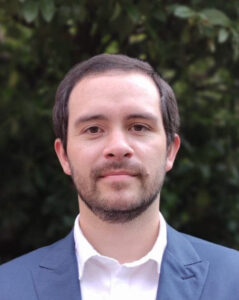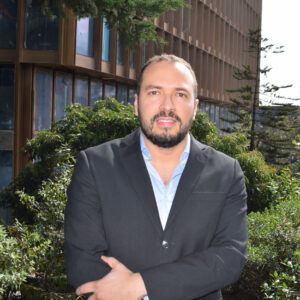T2: Strategies for Electric Vehicle Charging Management: A Comprehensive Demand Response Approach
Co-organizer: Cesar Diaz-Londono, Politecnico di Milano, Italy
Co-organizer: José Vuelvas, Pontificia Universidad Javeriana, Colombia
Abstract: The rapid growth in Electric Vehicle (EV) adoption presents challenges for integrating EV charging infrastructure with the electrical grid, as uncoordinated charging can jeopardize grid stability. Smart charging strategies are crucial to manage EV charging demand and ensure seamless integration. This tutorial delves into different strategies for managing the charging of EVs and their integration into the electrical grid. Two main Demand Response (DR) approaches are highlighted: a DR program for EVs as an indirect management mechanism, and Model Predictive Control (MPC) as a direct control strategy.
The tutorial initiates with an overview of DR and flexibility services within EVs, highlighting the significance of effective charging management while harnessing their energy storage capabilities. Subsequently, a DR program for EVs is introduced, which governs the charging decision process within a fleet. A time-of-use pricing strategy is employed to influence consumer charging decisions, employing a game theory-based model to capture interactions between the electric vehicle fleet operator and vehicle owners. The pricing-based approach is demonstrated to enhance fleet operator benefits and induce a shift in the fleet’s charging profile.
In contrast to the previous strategy that encourages EV owners to alter their charging times, this tutorial further explores direct control strategies that schedule the dispatched charging power. Employing the MPC technique, this control method computes optimal charging sequences at each time interval, leveraging a receding horizon strategy. The effectiveness of the MPC strategy is demonstrated in scenarios such as tracking day-ahead scheduling, fulfilling dynamic energy service requirements, or reducing operation costs. Additionally, the strategy accommodates uncertainties such as variations in EV arrival state of charge and potential generation disturbances.
Organizer’s Bios:
 Cesar Diaz-Londono
Cesar Diaz-Londono
Bio: Cesar Diaz-Londono is an Assistant Professor at Politecnico di Milano within the Dipartimento di Elettronica Informazione e Bioingegneria. He received the B.Sc. and M.Sc. degrees in electronics engineering from Pontificia Universidad Javeriana in 2014 and 2016, respectively. He holds a double doctoral degree, receiving a Ph.D. in engineering from Javeriana and a Ph.D. in electrical, electronics and communications engineering from Politecnico di Torino in 2020. Cesar graduated with Cum Laude honors for his master’s degree, and his doctoral thesis was awarded with the highest honors. Cesar possesses a wealth of experience in Research and Development projects, both funded by the Colombian government and the European Union. His involvement spans diverse areas, including the modeling and control of flexible loads, the development of model predictive controllers for energy balancing services, and the implementation of distribution networks in Real-Time simulators. His research interests encompass a broad spectrum, focusing on smart grids, demand response, the integration of electric vehicles into the electrical grid, optimal control techniques, and optimization strategies.
 José Vuelvas
José Vuelvas
Bio: José Vuelvas is an Assistant Professor in the Department of Electronics at the Faculty of Engineering and holds the position of director of the master’s Program in Energy and Sustainability at Pontificia Universidad Javeriana. With a background in electronic engineering, José earned his bachelor’s degree in 2009, followed by a master’s in electronic engineering in 2010, and completed his Ph.D. in engineering in 2019, all at Pontificia Universidad Javeriana. His academic focus encompassed electronic circuit design, control systems, optimization, game theory, and electric markets. Boasting over a decade of experience in the realm of higher education, José has made a significant impact as a university professor. In addition, he was a co-founder of Hakken, a tech firm that specialized in tailored solutions for renewable energies, lighting, and building automation. He received an Honorable Mention for his undergraduate thesis, followed by distinctions of Honors and Summa Cum Laude for his master’s work. His doctoral thesis was awarded with highest honors. Presently, José also holds the role of Chair for the Colombian chapter of the IEEE Automatic Control Society.
